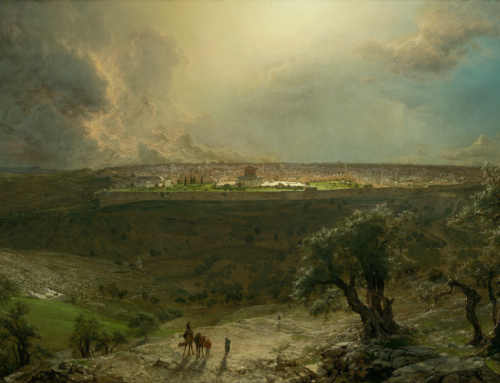The Church is a Mother. We are her children. As with our earthly mothers, some of us stay near and devoted to our Mother, the Church. Others keep their distance. For those Catholics struggling to love the Church as their Mother, it’s good to ponder the natural relationship between a mother and child and how it develops. This development process helps Catholics learn to be realistic and yet devoted to Mother Church.
Of course, the Church herself does not age as our earthly mothers do. She is ever ancient, ever new. The development process is not about the Church changing, but our changing, our conversion. Each stage of the typical natural mother-child development reveals something about how we can become a more mature member of the Church.
It is also important to note that unlike our earthly mother, Mother Church has both divine and human dimensions (CCC 779). In one sense, she is already perfect. We see this by looking at the saints in heaven. Yet, in another sense, the Church on earth is full of sinners. The Catechism calls her “the sinless one made up of sinners” (CCC 867). Thus, when we discuss the failures and sins of the Church, we speak regarding only certain of her earthly members, not her identity as manifested by the saints.
With these distinctions in mind, let’s examine the different stages of a typical natural mother-child development and how it calls us to be mature Catholics.
Toddlers & Super-Mom
Toddlers think the world of their mothers. Her kisses are medicine. Her wisdom is limitless. Her purse contains any possible need, from Kleenex to cough drops. And whatever she does, she does it as their mother. No one can replace her. Early on, Catholics can be similarly infatuated with the Church and with particular members of the Church. Maybe it’s a priest whose homilies are life-changing, or some devotion that brings healing and consolation, or some social outreach that helps the disadvantaged. This early exuberance is good, but it’s often limited. It doesn’t last a lifetime, nor does it see the whole reality of the Church.
Teenagers & “You’re Ruining My Life!”
Teenagers begin seeing the limits of their mothers. There are accusations of hypocrisy or injustice: “You’re ruining my life!” There can even be rejection, or at least going to a college far, far away. Many Catholics also experience this time of angst with the Church. They point out the hypocrisy of various Church leaders, decry the supposed injustice of Church teachings, and may even be tempted to reject their identity as Catholics. This stage is not terribly enjoyable for anyone. Yet, it can lead from childish infatuation to mature love.
Young Adults & Forgiveness plus Gratitude
As young adults, if we so choose, angst gives way to forgiveness and gratitude. We calmly appreciate and accept the limits of our mother. She is human. She doesn’t have every perfection, as we once thought when we were children. Nor did she try to ruin our lives, as we accused her when we were teenagers. Rather, she used the gifts she had to serve us as best she could, and she did a pretty good job. Similarly, Catholics can learn to accept and thank the Church as she is, with all her clumsy and even sinful members. That priest who disappointed you, yes he’s called to be holy, but he’s still a weak man. Maybe he just has a tough personality. Or that strict nun from your 1950s classroom, maybe she was young and unprepared to manage a classroom of thirty students. Whatever the follies and failures of her members, the Church herself remains a life-giving Mother, seeking our very best. For that, we can forgive her members and even be thankful for their work.
Adults & Mother’s Keeper
Finally, adults take responsibility for their mother. We do this first in small ways, like volunteering to shovel her sidewalks in the winter. Soon enough, we take care of her in bigger ways, as old age returns our mothers to the neediness of a child, and even an infant. As she cared for us in the nursery, so we take care of her in the nursing home. The saints all took similar responsibility for the Church. Think of St. Dominic or St. Catherine of Siena. Dominic encountered an environment with idle Catholic priests and widespread heresy. Catherine suffered a weak-willed pope and growing division. They responded not as teenagers but as adults, taking responsibility and spending themselves in love for the authentic renewal of the Church. They did this in heroic ways, but all Catholics are called to take responsibility in concrete, simple ways. When we see our Mother faltering in her members, we respond: “I am my Mother’s keeper.”
How is your relationship with Mother Church? Are you stuck in those teenage years? Or are you ready to be your Mother’s keeper as she’s kept you?
✠
Photo by Valeria Zoncollis







